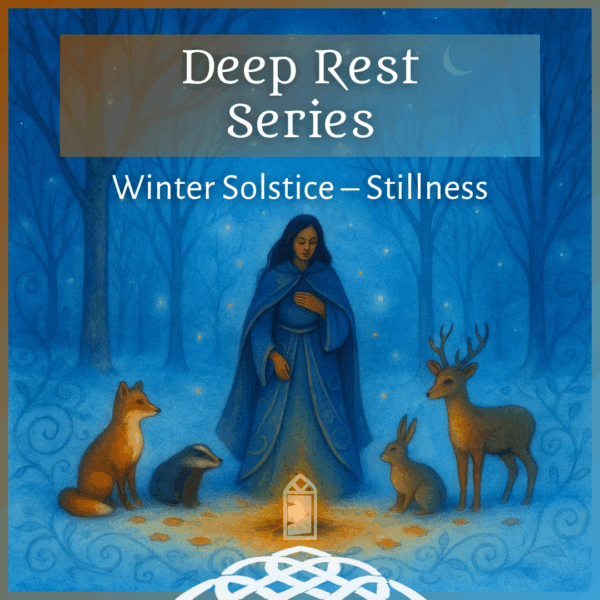I am delighted to share another beautiful submission for the Monk in the World guest post series from the community. Read on for Abigail Carroll’s reflection Poetry as Sabbath.
Sundays in my family as a child were for church, waffles and maple syrup, and enjoying the outdoors or helping out with house projects. In short, celebrating the Sabbath was about worship, food, nature, and family. Today, Sabbath continues to mean each of these things to me, but more recently, it has come to mean something else, too: poetry.
When God rested on the seventh day after creating the world, I think he was doing something much more profound than simply catching his breath. Indeed, I chuckle at the thought of the One from whom all energy flows suddenly low on fuel. More likely, to my mind, He was taking time to enjoy his creation. And that stepping back for the sake of enjoying creation is, for me, the underlying mandate of Sabbath: to practice delight.
I started intentionally practicing delight as a way to honor the Sabbath the year, as a doctoral student, I was pulling my hair out preparing for my comprehensive exams. My pace of reading was intense, and my mind was operating at high speed with no break. Watching television or taking in a movie, our society’s go-to fix when it comes to relaxation, proved useless as a doorway into rest. If I took a walk or jog, my brain kept rehearsing the information I was feeding it, and prayer, instead of helping me transcend my studies in order to focus on God, inadvertently became about asking God to help me survive my dreaded exams.
The solution was counterintuitive. I realized that in order to put my mind to rest, I needed to actively engage it in something else. And then the answer came: music. I had studied piano growing up but had long desired to try my hand at another instrument. So I took up the hammered dulcimer, and for the first few days after my dulcimer arrived, the delicate harmonies of its strings so enraptured me that I could hardly think of my studies. (Whoever originated the idea of heaven as full of harps clearly had not heard a dulcimer!) I had stumbled on pure delight, which both solved my problem and created a new problem. All I wanted to do was play music. Thankfully, there was one day a week when I absolutely could—Sunday!
Each week after church, I made a point to devote the lingering hours of the afternoon to courting beauty in sound. I looked forward to this time so much that I often turned down social invitations to protect it. When my head hit the pillow on Sunday nights, my mind was fully rested. This was my routine for several years. While I no longer religiously devote Sunday afternoons to my dulcimer, I still take that time to engage in the practice of delight, and my new Sabbath practice is poetry.
Poetry is its own kind of music, and what I love about writing poetry is where it takes me—both physically and spiritually. In pursuit of words, I find myself meandering woodland trails, gazing for extended periods of time at clouds, and examining the dance of reeds at the edge of the lake. For me, poetry has become a way to notice, and noticing, I have discovered, holds profound implications for the soul. The more I notice, the greater my capacity for gratitude, and the greater my capacity for gratitude, the deeper my experience of joy.
In truth, I have written poetry since childhood, but only recently have I come to see it as more than just an enjoyable way to spend an afternoon. Alongside prayer, scripture reading, fasting, and solitude, writing poems has become, for me, a way to actively engage the disciplines of my faith. Poetry does not replace the traditional spiritual disciplines, but rather serves as a particularly attractive doorway into them. Often, a poem is birthed out of a scripture that catches my attention during study, and I engage my love of words as a vehicle for meditating on the Word. When it comes to prayer, I find that the poet inside me often manages the courage to articulate in verse what I otherwise lack the audacity to pray aloud. As a poet, I need solitude to do my work. I have come to find, however, that solitude is not only necessary for writing poetry, but a tremendous byproduct of it, too. And that leads to fasting, which, for me, is surprisingly inherent to the act of writing. When creating a poem, I am fasting from the steady diet of distractions this world continuously feeds me, and by fasting from distraction, I find myself becoming more attentive to what matters.
If writing poetry can be a doorway into the spiritual disciplines, the spiritual discipline that poetry most helps me engage is rest. For me, poem-making is not just an exercise I do on the Sabbath; it is Sabbath. Perhaps this is because engaging in delight affords me a deeper sense of renewal than the act of merely ceasing from my work. Delight may very well be the deepest form of rest. I’m thankful that the Creator set an example of delight when he called his creation “good,” stepping back to take it all in. And I’m thankful that, by inviting us to celebrate Sabbath, He furnishes us with the time and space to engage in the restful and restorative practice of delight as a way to honor him.
 Abigail Carroll, author of A Gathering of Larks: Letters to Saint Francis from a Modern-Day Pilgrim (Eerdmans), serves as pastor of arts and spiritual formation at Church at the Well in Burlington, Vermont. She enjoys writing, photographing nature, and a well-brewed cup of hot tea. Click here to visit her online>>
Abigail Carroll, author of A Gathering of Larks: Letters to Saint Francis from a Modern-Day Pilgrim (Eerdmans), serves as pastor of arts and spiritual formation at Church at the Well in Burlington, Vermont. She enjoys writing, photographing nature, and a well-brewed cup of hot tea. Click here to visit her online>>



One Response
“courting beauty in sound” via hammered dulcimer and poem-making—what a lovely, ongoing enterprise. You sound like a kindred spirit. I’m off to visit your website . . .